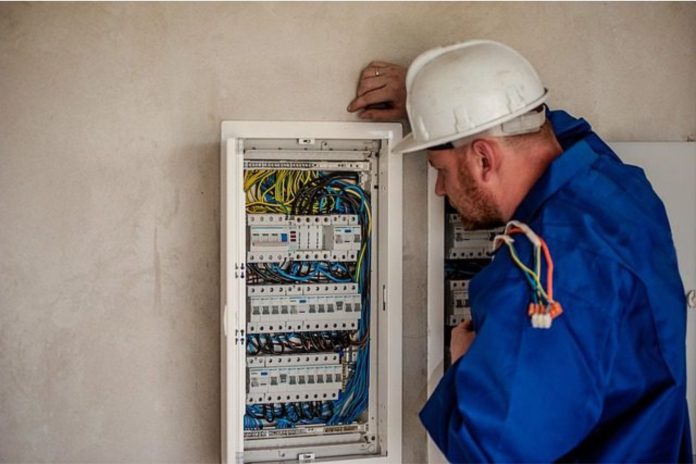As homeowners, we often face unexpected trials that put our problem-solving skills to the test. Have you ever experienced a power outage in the middle of preparing dinner for your family?
Or perhaps you’ve been startled by a sudden flickering of lights during a cozy movie night? These problems can point towards a potential electrical emergency, a situation that requires swift action.
In fact, electrical issues in your home can range from minor inconveniences to serious hazards, if not attended to properly. By learning these crucial steps before dialing an emergency electrician, you, too, can become a proactive homeowner ready for any electrical crisis that may come your way.
In this guide, we will navigate through the world of electrical emergencies, leading you toward a haven. But where do you start? This practical guide will serve as your compass, directing you towards effective preventive measures, and equipping you with knowledge on when to call in the professionals. Let’s bring light to the darkness of electrical emergencies, shall we?
Recognizing Electrical Warning Signs
Your home, like a living being, communicates distress signals when something is off. In electrical terms, these signals may involve frequent power cuts, buzzing noises from outlets, or inexplicably high power bills. Ignoring them would be like shrugging off a persistent headache – it might escalate to a point where it becomes severe.
Now, imagine if your house could talk; wouldn’t it tell you that a fixture is enduring too much heat, or an outlet is overloaded? These indicators highlight potential dangers and calling an emergency electrician at this point could prevent a more serious problem down the line.
Consider each warning sign as an opportunity to act, a chance to prevent tricky situations. So next time, before quickly replacing a blown fuse, delve a little deeper and look for other signs.
Quick Fixes vs. Measured Understanding
Band-aid solutions may seem tempting in situations where there’s a flickering light or a malfunctioning outlet. However, temporary solutions can sometimes worsen the situation by prolonging the underlying issue.
What’s the difference between fixing the occasional blown fuse and understanding why it blew in the first place? The latter gives you insight, enabling you to prevent reoccurrence. Understanding and diagnosing your home’s electrical situation not only means a safer environment, but also saves time, money, and potential frustration down the line.
No doubt, quick fixes have their time and place. Nonetheless, a measured understanding will prepare you for an emergency and make you more competent in managing your home’s electrical health.
Preventive Maintenance: Your First Line of Defence
Now that the notion of quick fixes and warning signs has been explored, let’s discuss preventive maintenance. Not only can maintenance prevent minor issues from escalating, but it can also spotlight potential complications before they occur. Think of it as your home’s regular ‘check-up’.
By ensuring your electrical systems function optimally, you safeguard your home while also protecting your peace of mind. Regular maintenance also extends the lifespan of your electrical equipment, reducing replacements and repairs in the long term. So remember, prevention is always better than cure. By conducting regular maintenance, you circumvent potential electrical emergencies before they take root.
DIY vs. Professional Help
When it comes to electrical issues, you might feel up to the task of DIY repair. While some minor areas might fall within your capabilities, be mindful. Your home’s electrical system is a complex network, and recklessly poking around can lead to serious complications or even hazards. Trained electricians have the knowledge and experience to handle complex electrical work safely.
They can delve deeper into the issue, locating and correcting potential hazards you may overlook. Plus, they can provide you with valuable insights to prevent future emergencies. The rule of thumb? When in doubt, call it out. Don’t hesitate to call a professional when you feel the task is beyond your capacity.
The Cost of Ignorance
Failure to recognize warning signs or continuously opting for temporary fixes could lead to severe complications, such as electrical fires. Such ignorance might also subject you to higher costs over time with frequent repairs and replacements.
On the contrary, timely intervention and preventive measures would save expenses in the long run. Keep this in mind; cost-effectiveness shouldn’t only be measured in immediate terms but should be regarded as a long-term investment.
Wrapping Up: Be Prepared, Be Safe
In essence, becoming familiar with your home’s warning signs, understanding the need for preventive maintenance, and knowing when to call a professional are steps toward becoming a more confident homeowner. They ensure you act promptly during heightened situations and maintain a safe environment for you and your family. It’s not just about resolving an immediate crisis, but it’s about nurturing a deeper understanding of your home’s electrical system.
“Know Your Home” could be a homeowner’s new mantra, couldn’t it? Electrical emergencies need not feel like navigating through a storm anymore. The knowledge you now possess will serve as a compass, guiding you safely ashore. Remember, a well-prepared homeowner is a safe homeowner!





